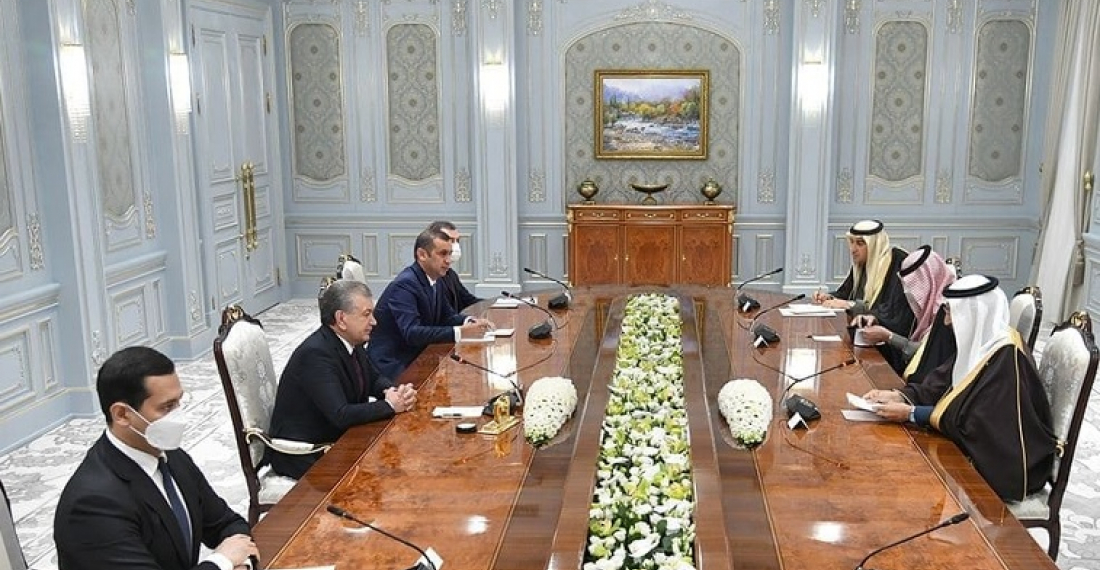- Armenia-Azerbaijan Strategic Expert Platform: Members emphasise the importance of the present moment for the South Caucasus and call for the momentum to be used for the long-term peace and prosperity of the region
- Thursday Interview: Dr. Anar Valiyev
- Food insecurity in Somalia has nearly doubled in the past year
- Türkiye evaluating potential measures in case of a US-Iran conflict
- European Parliament reaffirms support for Ukraine and EU Path
- EU moves ahead with Ukraine loan preparations despite Hungarian block
Saudi Arabia and Uzbekistan discuss economic co-operation and investment

Uzbekistan and Saudi Arabia are taking steps to promote business ties and investment at a time when both countries continue to prioritise economic reform and development.
On Monday (25 January), the President of Uzbekistan Shavkat Mirziyoyev received a Saudi delegation headed by the Minister of Investment Khalid Al-Falih, reports information agency Dunyo of the Ministry of Foreign Affairs of the Republic of Uzbekistan. Al Falih had earlier arrived in Tashkent at the head of a large delegation of officials and business leaders from Saudi Arabia in what was seen as the biggest ever effort to strengthen economic ties between the two countries.
According to the reports, the further strengthening of relations between Uzbekistan and Saudi Arabia were discussed during the meeting.
“The President highly valued the dynamic upward trend in the bilateral cooperation in recent years. So, despite the pandemic, there has been an active dialogue at the level of government agencies and businesses of the two countries. Another evidence of this was the arrival in Uzbekistan as part of the Saudi delegation including the CEOs of about 30 leading Saudi companies,” the statement said.
Specific projects for practical cooperation were discussed during the talks. An agreement was reached on the preparation and implementation of new projects in the energy sector, oil and gas sector, chemical and gas industry, industrial sector, agriculture, health and pharmaceutical sector, and other fields, including through the application of the principles of public-private partnerships.
“The day before, a joint business forum was successfully held in Bukhara, a decision was made to establish a Business Council, and agreements were inked signed on the implementation of major projects. Yesterday, a project was launched to build a new 1200-megawatt thermal power plant in Syrdarya province with the participation of ACWA Power. In addition, together with this company, wind power plants will be built in Bukhara and Navoi provinces with a total capacity of 1000 megawatts. In general, the number of joint ventures and projects in Uzbekistan with the participation of Saudi investments has increased significantly over several years,” the press service said.
Priority was paid to developing financial support instruments for joint programmes and projects, including the establishment of investment companies and microfinance organisations in Uzbekistan.
It was agreed that a roadmap would be adopted and implemented to develop and promote these initiatives. The Intergovernmental Commission will resume its activities and working groups will be formed for priority projects.
source: commonspace.eu with agencies
photo: The Minister for Investments of Saudi Arabia at a meeting with the president of Uzbekistan in Tashken on 25 January 2021.








